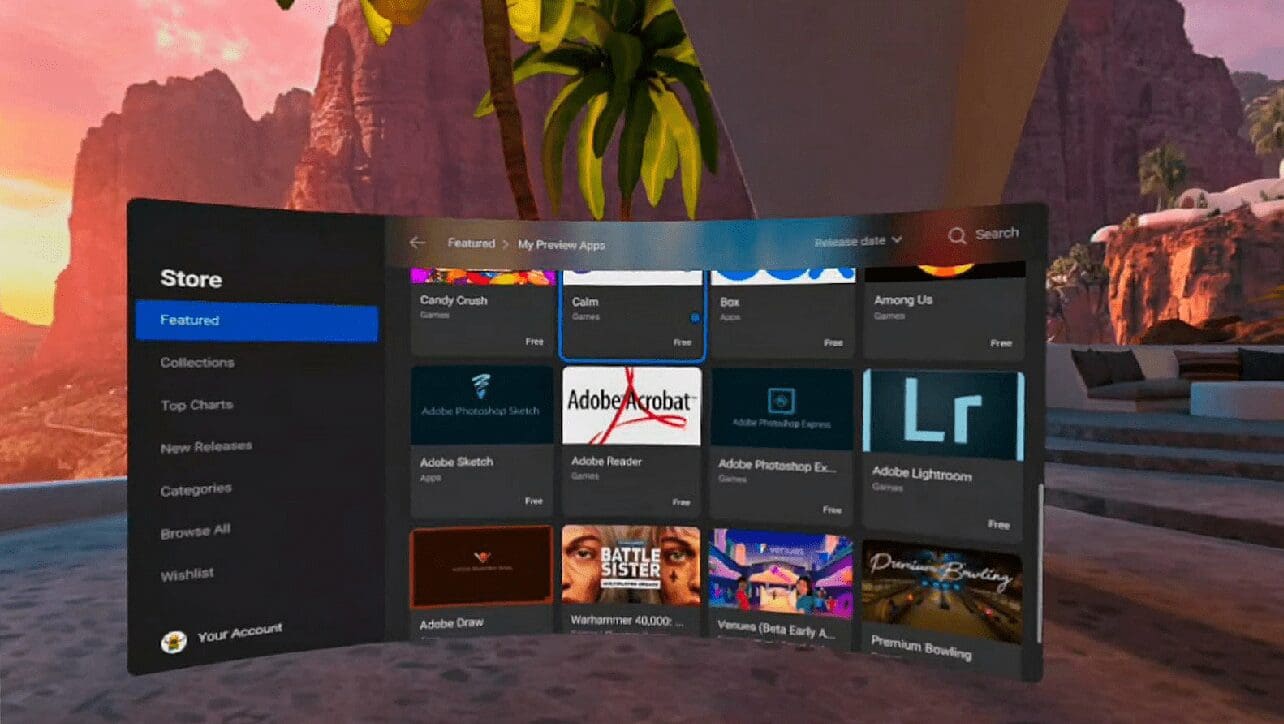Oculus Quests To Intensify The Gaming Experiences With Apps

A new Oculus Quest rumour suggests that the Facebook-owned VR company may be bringing Android apps to its headsets. If this is the case, it could result in a significant shift in what we consider to be our go-to computing devices.
Since the world first jacked into William Gibson’s 1984 novel Neuromancer, virtual reality computing has been something of a pipe dream. Here was a world where commerce, creative arts, and day-to-day life administration took place in cyberspace – a second, digital realm parallel to real life.

Even though it is rapidly maturing, the modern evolution of virtual reality is still in its infancy. Headsets like the Valve Index demonstrate the premium potential of high-end immersion, while the wildly popular Oculus Quest 2, with its wireless capabilities, demonstrates that virtual reality can also be accessible.
The latest rumors, however, suggest that Facebook’s Oculus VR division is experimenting with bringing Android apps natively to its headsets, which could be a game-changer for computing in VR.
Developers can distribute test and preview builds of applications in development for Oculus headsets in the Preview App section.
The indie game Among Us, social platforms TikTok and Snap, video conferencing software Zoom, streaming service Spotify, and the MS Remote Desktop and MS One Note office software were all briefly mentioned in the section. These do not currently have Oculus-specific variants and were presented under the developer umbrella of “Android Apps for Quest.”
Virtual Reality Of Oculus Office Space
It remains to be seen whether these are full VR apps that take advantage of the platform’s stereoscopic depth and presence – or simply 2D panes as seen on a phone screen. There has been no official confirmation of their arrival in VR, though Oculus Consulting CTO John Carmack is known to be pushing for Android apps on Quest.
However, the possibility of familiar apps within VR could really open the door for VR headsets as a workplace mainstay, whether in a commercial office space or the growing number of home offices.
However, some obstacles must be overcome before virtual reality headsets become as common in the workplace as computers and laptops.
VR headsets are still relatively heavy items – as long as the working day remains eight hours long, today’s headsets will be too tiring to be useful. They also limit social interaction due to their view-encompassing design, which shuts out the outside world – even as efforts to bring social spaces have improved, avatar design has evolved, and facial tracking for better emotive recognition has become more effective, thanks to devices such as the HTC Vive facial tracker.








